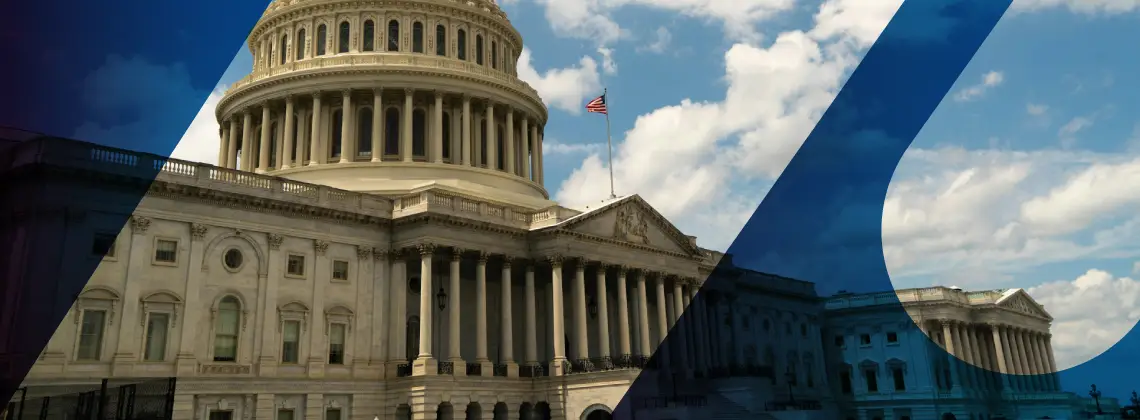News analysis
US election 2024: how will the outcome impact governance?

US election 2024 is less than six weeks away. What will its impact be on corporate governance once the winner is chosen?
The last event of the mammoth global 2024 election calendar will see former President Donald Trump take on Vice President Kamala Harris. Like the two previous US elections, the ideological differences between the candidates are profound – a raw representation of modern political polarisation.
From this, it goes without saying that each potential outcome will have dramatically different impacts on many aspects of life in the US. In the case of corporate governance and business leadership, those impacts will be strong and will quickly reach beyond America’s borders.
So, let’s dive into projections of what those impacts will look like:
How will US election 2024 impact corporate governance: the basics
A defining factor in corporate strategy and decision-making is the goals of key stakeholders and the pressure they apply to see those goals reached. Because of this, US businesses are often heavily influenced by the stakeholder goals around them, and in November, the identity of many key stakeholders, from political commanders-in-chief to nitty-gritty regulators, could change.
This is why the US election 2024 will significantly shape the business environment for the next 2-4 years or even longer.
The whole picture of the election’s impact on governance comes from analysing all of the races and not just that for the president; specifically, we should look at who controls the US House and Senate, as well as who might win key state governorships that are up for grabs.
Our job is to analyse all these contests while keeping in mind the most pressing boardroom issues of today:
- The amount of regulatory oversight on businesses
- The amount of focus on sustainability
- The amount of focus on diversity at the boardroom level
- The impact of AI and debates around ethics and professional responsibility
That said, the presidential race is a key indicator of the next four years, given their power to veto and influence legislative agendas. It’s also interesting that this election pits someone with a history of running big businesses against someone who has a history of taking them on in court.
Here’s a run-down of what to expect:
If Kamala Harris wins the presidency
- Focus will increase on ESG. Harris is a co-sponsor of the Green New Deal, supports sustainable energy and has fought—and sometimes won—significant legal cases against fossil fuel giants like Chevron and BP. This points to strong support for ESG or sustainability initiatives. Even if the current US backlash results in a ” branding ” change for ESG initiatives, she’ll stick to the underlying principles.
- Diversity and inclusion will be welcomed: As recently as April 2024, Harris remarked that “you can’t truly invest in the strength of our nation if you don’t pay attention to diversity, equity, and inclusion.”
- She’ll have no problem with more regulations: It isn’t a core campaign pledge, but Harries has taken on big businesses in the past as part of her legal career, motivated by consumer protection and business ethics. She’ll likely keep that mentality in any future presidency.
It’s worth noting, however, that Harris’ policies could likely meet resistance from some state governments and investment firms who would consider her approach too heavy-handed and politicised.
If Donald Trump wins the presidency
- There will be a reduced emphasis on ESG. Trump once dismissed ESG as a “scheme” that was “designed to funnel retirement money to the maniacs on the radical left”
- Climate change policies will lose favour. Trump will likely continue his rejection with steps as bold as withdrawal from the Kyoto accord during his last presidency. Such a directional change would likely be felt in the boardroom.
- Corporate burdens such as reporting and taxes would likely lessen: Trump—a businessman with decades of experience—has always voiced opposition to corporate taxes and regulatory oversight. Neither would likely see significant increases while he is President unless his back is truly against the wall.
- Focus on “traditional” business metrics will increase: Trump is more likely to support traditional business models where a board acts solely in shareholder interests. This contrasts the more modern approach of “stakeholder capitalism”, where the board takes a more balanced approach and considers other key groups.
It’s worth noting, however, that Trump’s policies around ESG may not turn the tide of the multi-billion dollar investment market in sustainability and related principles. His positions on social issues might also put him at odds with key stakeholder groups worldwide, locking him into endless debate and legal battles rather than key policy changes.
If the US Congress falls under one party’s control
Currently, Republicans have control of the House, while Democrats control the Senate. Either party gaining both in November will likely mean policies like those described for the presidential candidates above will likely get more air-time, more debate, and have more influence on US law.
In summary
Once again, the US election will pit two distinct corporate ideologies against each other. The businessperson will face off against the expert in corporate law. It’s only natural that such a contest will impact corporate governance, however it turns out.
Once it’s over, the critical factor will be how willing the winner is to implement their business outlook, and how they’ll work with other elected officials to do it.
Insights on leadership
Want more insights like this? Sign up for our newsletter and receive weekly insights into the vibrant worlds of corporate governance and business leadership. Stay relevant. Keep informed.

